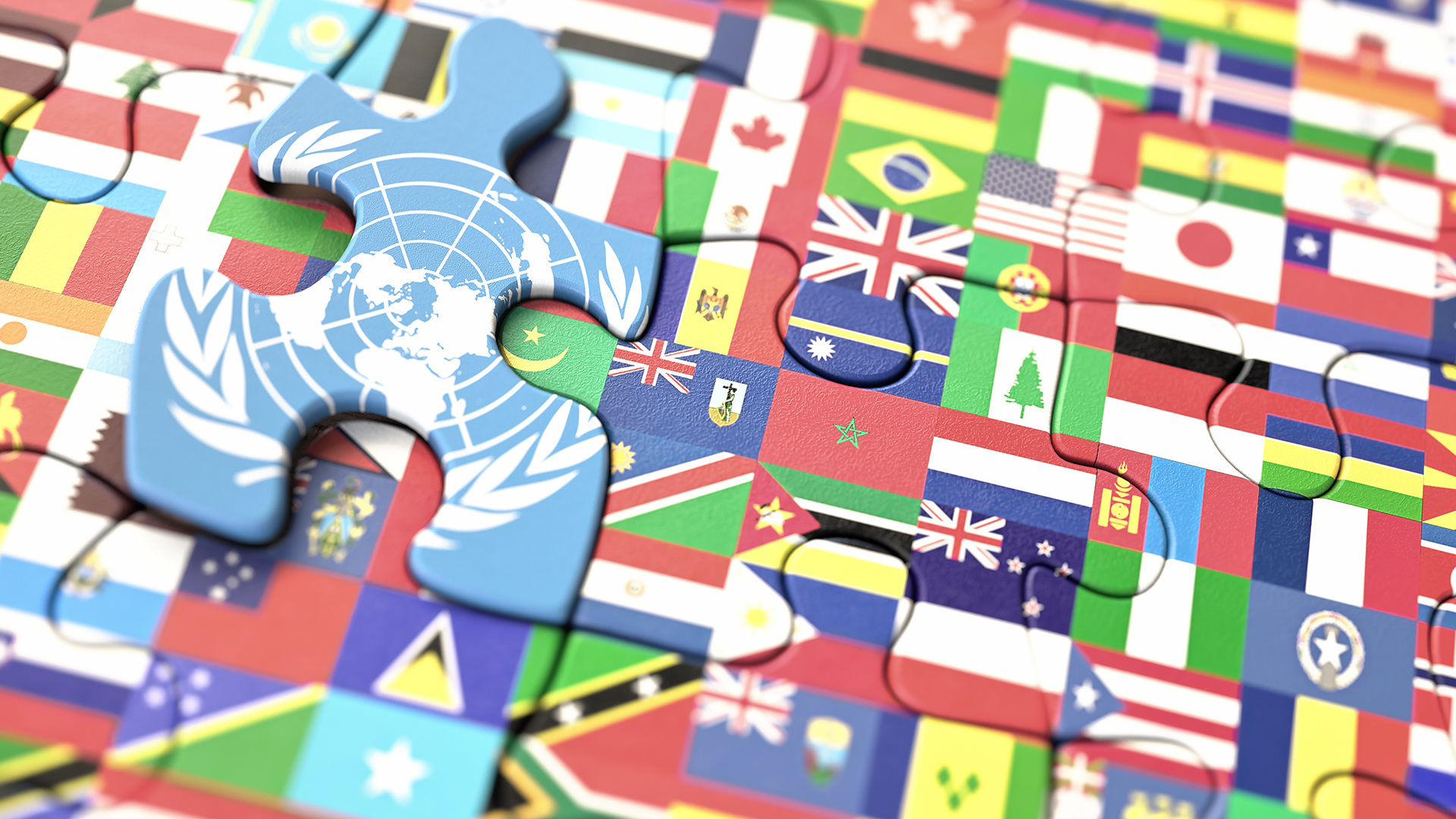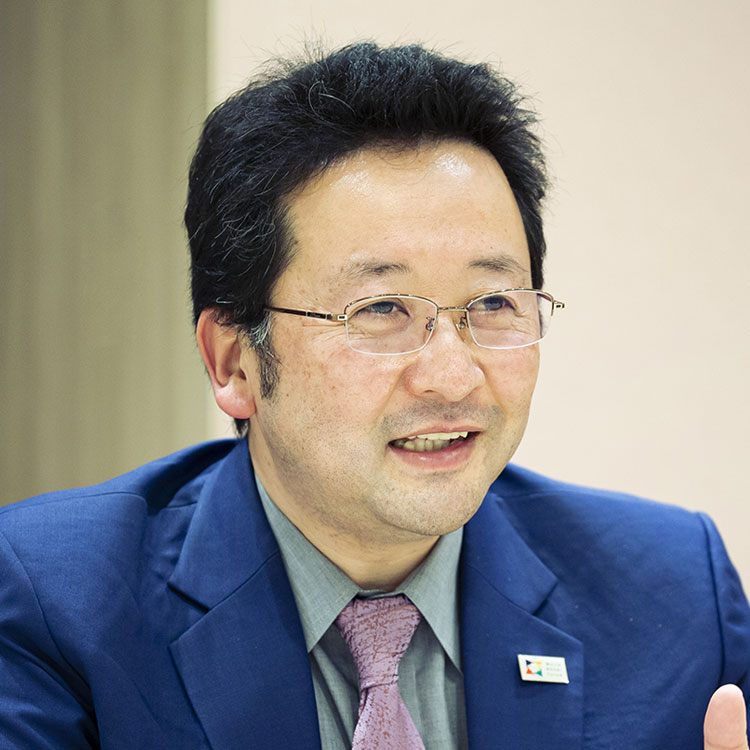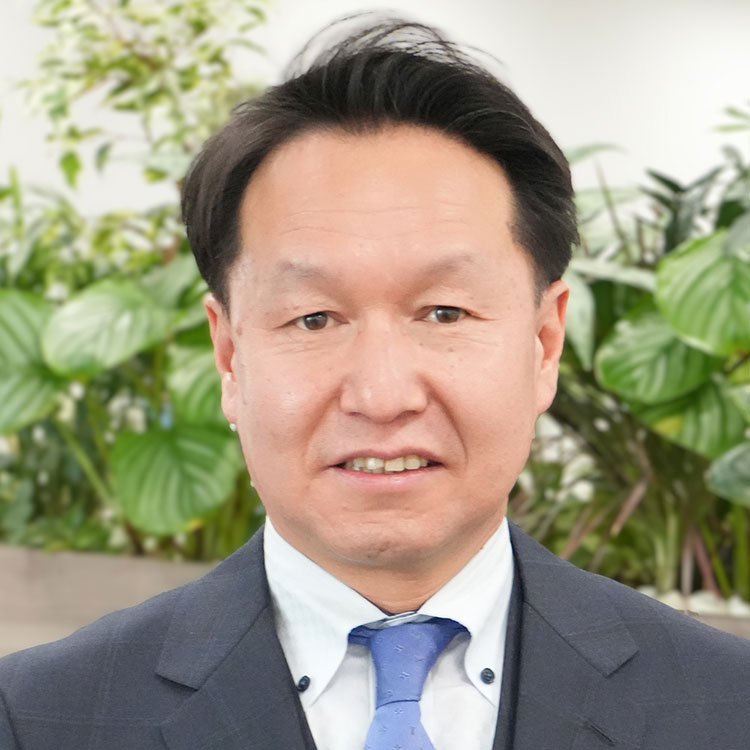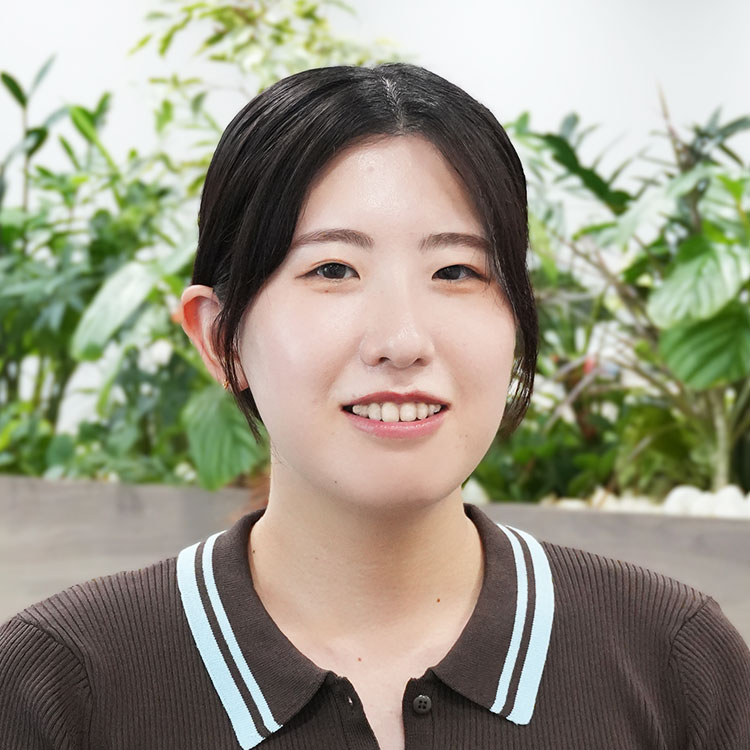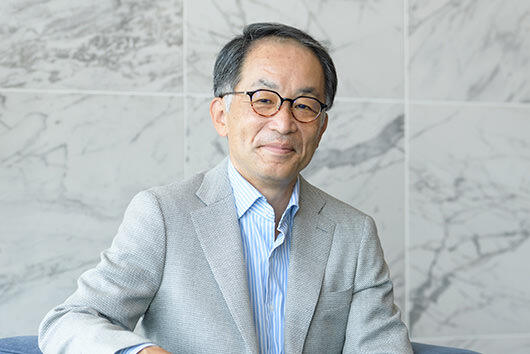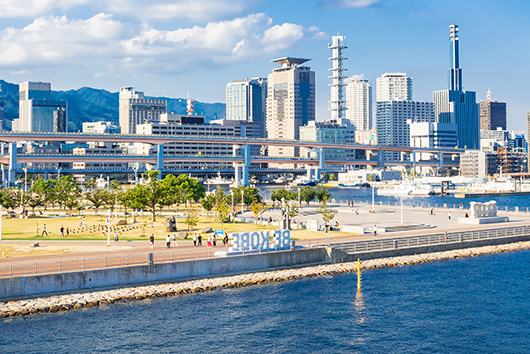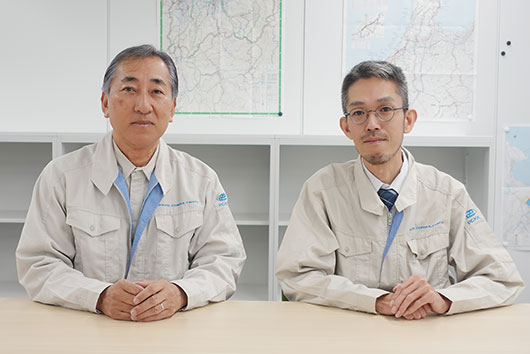World Bosai Forum 2025 (World Bosai Forum 2025, hereafter WBF2025) was held in Sendai City from March 7 to 9, 2025. More than 5,000 people from 34 countries participated in total and actively exchanged opinions to promote the implementation of Sendai Framework for Disaster Risk Reduction. PACIFIC CONSULTANTS supported the establishment of the Forum and has been active as a corporate supporter since then, holding sessions and exhibiting a booth during the event. The World Bosai Forum's Prof. Yuichi ONO, who is Representative of Board of Directors of WBF2025 and Deputy Director of International Research Institute of Disaster Science, Tohoku University, and Kazuhiko OBOKATA, Director General of Land Infrastructure Div., PACIFIC CONSULTANTS, and Yukiko YANO, International Sustainability Promotion Dept., Global Company talked about their reflections on WBF2025 and efforts for disaster prevention.
About World Bosai Forum
The World Bosai Forum is a citizen-led international conference on disaster prevention established following the establishment of the Sendai Framework for Disaster Risk Reduction at the 3rd United Nations Conference on Disaster Risk Reduction (2015). It has been held every two years since 2017 (cancelled in 2021) with the aim of creating a forum for promoting the implementation of the Sendai Framework for Disaster Risk Reduction 2015-2030. Specifically, it aims to instill the four priority actions set out in the Sendai Framework for Disaster Risk Reduction: (1) understanding disaster risk, (2) strengthening disaster risk governance to manage disaster risk, (3) investing in disaster risk reduction for resilience, and (4) improving disaster response preparedness and "build back better" in the recovery and reconstruction process, into the policies, societies, and cultures of countries around the world. Based on the agreement on "Collaboration and Cooperation for Promoting the Implementation of the Sendai Framework for Disaster Risk Reduction" concluded in 2017 with the International Research Institute of Disaster Science, Tohoku University, with whom Pacific Consultants came into contact during the recovery and reconstruction work following the Great East Japan Earthquake, Pacific Consultants continues to carry out various activities and also supports the World Bosai Forum as a corporate supporter.
INDEX
- Demonstrating the effectiveness of disaster prevention investments in numbers
- As a "place" for collaboration between industry, academia, government and the public
- Further promoting the need for investment in disaster prevention
Demonstrating the effectiveness of disaster prevention investments in numbers
YANO: Professor ONO, you have been active in the international disaster prevention field for a long time, serving as Representative of Board of Directors of World Bosai Forum and as the deputy director of International Research Institute of Disaster Science, Tohoku University. What first got you involved in disaster prevention?
ONO: I originally studied geography in the United States and earned my doctorate in tornado disaster research, but the turning point for me was my on-site investigation of the tornado damage in Bangladesh in May 1996, which claimed more than 700 lives. I saw countless bodies buried without identification in a high school playground, piles of earth on top of them, hospitals unable to perform surgery due to a power outage, and injured people lying on the floor without receiving adequate treatment. This made me want to do something about disaster prevention in developing countries. I got a job at the United Nations in a disaster prevention-related position, and then, following Great East Japan Earthquake in 2011, I was assigned to the International Research Institute of Disaster Science, which was newly established at Tohoku University.
YANO: I understand that at that time you had no intention of joining the International Research Institute of Disaster Science as a researcher.
ONO: Having worked as a UN staff member for a long time, I thought I could not return to being a pure researcher. When I looked at disasters from a bird's-eye view, the biggest problem was that we were not able to prevent them in the first place, and we needed to invest more in disaster prevention. Every country spends money on recovery and reconstruction after a disaster strikes. Probably more than 90% of disaster-related expenditures are post-event. If we do not switch this to disaster prevention investment, we will not be able to reduce the damage. Especially in developing countries, every time they suffer a disaster, they lose the opportunity for economic growth, making it difficult to escape poverty and achieve sustainable development. It is difficult to spend money on disasters that have not occurred, but I came to think that it is necessary to quantify how much damage will be reduced if this amount of disaster prevention investment is made, so that anyone can understand the effectiveness of disaster prevention investment.
YANO: As natural disasters become more frequent and severe, I think investing in disaster prevention is extremely important. What kind of initiatives is the International Research Institute of Disaster Science working on?
ONO: At the Third United Nations World Conference on Disaster Risk Reduction held in Sendai in 2015, the new "Sendai Framework for Disaster Risk Reduction 2015-2030" was established. This puts a high priority on prevention, promotes the "mainstreaming of disaster risk reduction" by expanding the budget for disaster risk reduction investment, improves preparations for effective disaster response, and incorporates new perspectives such as "build back better" in the recovery and reconstruction process. Although we were unable to set specific figures, we set goals such as "significantly reducing the number of disaster deaths worldwide by 2030" and "reducing direct economic losses caused by disasters." To achieve this, it is necessary for each country to take disaster prevention measures in a planned manner based on evidence, and we decided to establish a Global Center for Disaster Statistics to support this within International Research Institute of Disaster Science, Tohoku University. Until now, disaster statistics that existed around the world were not official from each government, or were insufficient in both quality and quantity, and could not be used effectively in disaster prevention policy planning. We thought about collecting them comprehensively and systematically. We have not yet achieved sufficient results, but by making disaster damage visible, we are able to see the effectiveness and importance of disaster prevention investments in numerical terms, which I believe is a modest but extremely important initiative.
As a "place" for collaboration between industry, academia, government and the public
YANO: I heard that World Bosai Forum was born out of the Third United Nations World Conference on Disaster Risk Reduction. This is the fourth time it has been held.
ONO: I think it is very significant to have a forum for relevant parties to gather and exchange information and opinions in order to promote the implementation of Sendai Framework for Disaster Risk Reduction. In fact, during the three-day conference, a total of 5,434 people from 34 countries, including international organizations, government organizations, academic research institutes, and private companies, participated, 46 sessions were held, and 85 exhibition booths were set up.
YANO: I also participated in the entire event and had the opportunity to speak with people from various countries. I believe that we were able to share knowledge and related information on the latest disaster prevention technologies from Japan.
ONO: A single university research institute cannot have this much influence, and if the Japanese government were to take the lead in hosting it, it would end up being a message from the country. I think there is great value in being a platform that anyone can freely drop in on, and an international conference that involves the participation of citizens.
YANO: PACIFIC CONSULTANTS has been working with Professor ONO on various projects for over 10 years.
OBOKATA: We have had personal contact since Dr. ONO worked for the United Nations, but we started working together as a company in earnest in 2015 when we helped establishment the Global Center for Disaster Statistics and World Bosai Forum. Dr. ONO's activities are consistent with the aim of Pacific Consultants, which is to create new value in disaster prevention through collaboration between a variety of people with the same aspirations, including government, companies, academia, the media, NGOs, NPOs, and individuals. We believe that as PACIFIC CONSULTANTS, we need to get out more and get involved in people's circles to solve problems, so this is an important activity in terms of broadening our perspective.
YANO: There are a wide variety of departments involved within the company.
OBOKATA: All six fields from Land Infrastructure Div. including rivers, erosion control, ports, resource circulation management, water supply and sewerage, and geotechnical technology, are participating in this forum, and Social Innovation Div., Digital Service Div., and Global Company are also actively cooperating. We were also able to receive many questions and valuable advice from other participating companies and organizations, as well as visitors, and it was a very good opportunity for future technological development. I think we were able to appeal to developing countries and others that have limited budgets, and that this is something that can be done. In the presentation session, we discussed two themes: "Improving disaster resilience in response to climate change and utilizing Japanese technologies for the sustainable development of local communities" and "Toward the realization of a sustainable disaster prevention mainstream society - joint research on a comprehensive quantitative evaluation system for urban development measures", and the panel exhibition introduced a wide range of our disaster prevention and reconstruction-related technologies.

Further promoting the need for investment in disaster prevention
YANO: Now that WBF2025 is over, what are your plans for the future?
ONO: There are many things we need to do. For example, I would like to invite more government officials from developing countries to the forum so that it will literally live up to its name of "world". In that sense, once the foundations have been established a little more, I would like to consider holding a forum outside of Sendai overseas. Last year, we held an experimental disaster prevention event in Silicon Valley in collaboration with Stanford University, and various startup companies and investors participated. We are currently working on the development of disaster prevention-related data, and at the same time, we are also considering a "disaster prevention rating" for regions and facilities, which will require the use of AI and other technologies. I think it would be effective to appeal to the public in Silicon Valley. The next World Bosai Forum Sendai Framework for Disaster Risk Reduction should be.
YANO: There are many things that need to be communicated to the world. Please tell us what you expect from PACIFIC CONSULTANTS.
ONO: I have high expectations (laughs). Up until now, Pacific Consultants has been continuously seconding employees to the International Research Institute of Disaster Science and has supported us as a sponsor of World Bosai Forum. I would like PACIFIC CONSULTANTS to promote its various disaster prevention knowledge and technologies to the world. I hope that we can grow together.
YANO: Since May, I have been seconded to the International Research Institute of Disaster Science at Tohoku University, where Professor ONO is affiliated. As we have discussed, disaster prevention is a broad field and involves a wide range of stakeholders, so I would like to take advantage of this opportunity to broaden my network and knowledge and think about how PACIFIC CONSULTANTS can contribute to international disaster prevention. In particular, I would like to tackle climate change, which was one of the sub-themes of this year's World Bosai Forum, and combine the digital field, which I have been working on, with disaster prevention.
OBOKATA: We ourselves have had the opportunity to meet with people involved in disaster prevention from around the world, and have gained many new realizations and learnings. Above all, we have learned a lot from the passion and enthusiasm of Dr. ONO and his staff for the advancement of global disaster prevention, and we will convey that to our mid-career and young employees and put it into concrete action. How do we solve the issue of visualizing the effects of disaster prevention investments, as you mentioned today? In the short term, we need to develop tools to do so, and in the longer term, we would like to disseminate various disaster prevention initiatives that utilize PACIFIC CONSULTANTS' comprehensive capabilities to the world so that they can be used around the world. We look forward to Dr. ONO's continued guidance. Thank you for today.



